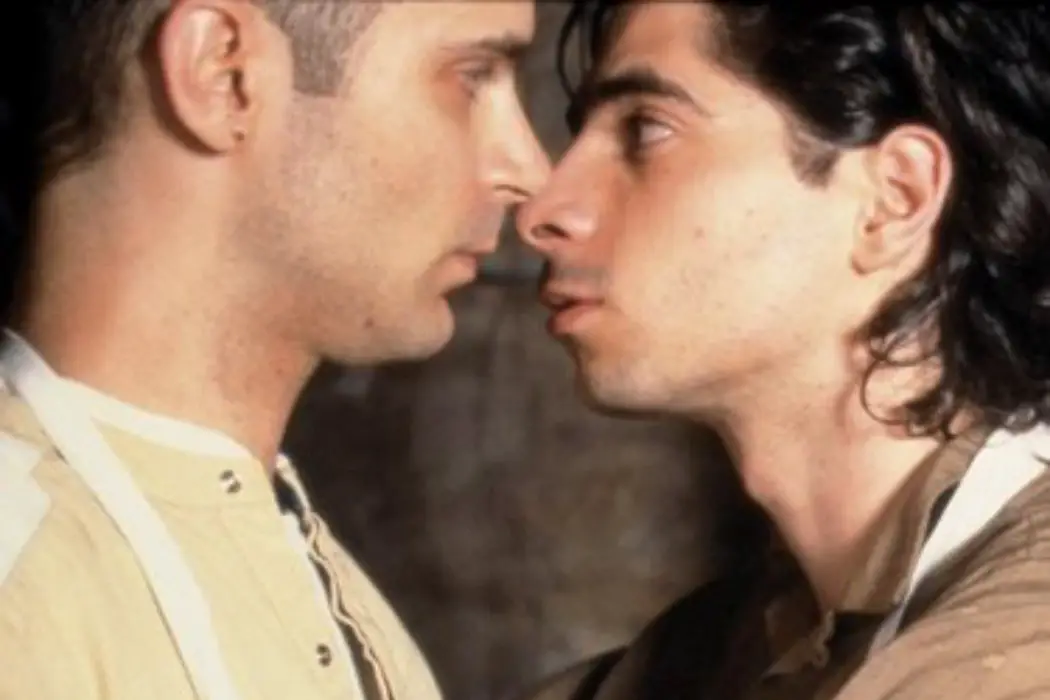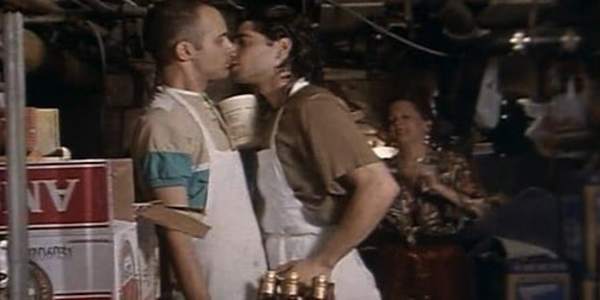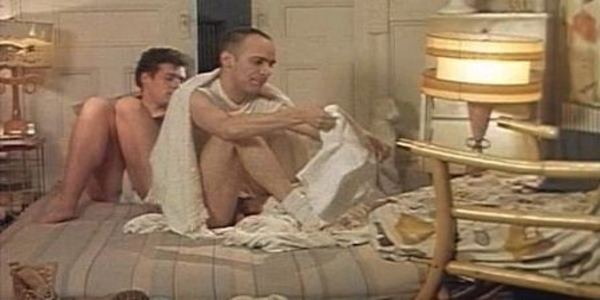Queerly Ever After #4: FUN DOWN THERE (1989) Part I

Amanda Jane Stern is an actress, writer, and director from…
Queerly Ever After is a bi-monthly column where I take a look at LGBT+ films that gave their characters a romantic happily-ever-after. There will be spoilers.
Taking a break from my normal format, I will be doing a two-part piece on Fun Down There (1989). Part 1 will be my review as usual, in part 2 I will publish an interview I had the chance to conduct with co-writer/directer Roger Stigliano and co-writer/lead Michael Waite.
This hidden gem from 1989 — which won the prestigious Teddy award at the 1989 Berlin International Film Festival — Fun Down There, follows Buddy (Michael Waite), a wide-eyed young gay man from upstate New York who decides to leave home and move to New York City. The film, told in seven chapters, depicts Buddy’s first week in NYC. There is not that much info about this movie online, but luckily, they were screening it at The Quad in NYC as part of their Coming Out Again series, so I had the chance see it on the big screen. Although I wasn’t sure at first if this was going to be a movie I enjoyed, or if it would even fit this list, I was pleasantly surprised by how much I liked it, and that is did qualify for my column.

Upon arriving in the city, Buddy finds himself in the East Village where he meets Joseph (Nickolas B. Nagourney), a slightly older, gay man. The two hit it off almost instantly and start a relationship. Joseph shows Buddy around New York and introduces him to life as a gay man in the big city. One night, Joseph brings Buddy to a party hosted by his friend Greta (Gretchen Sommerville). This scene is a definite highlight of the film. Not only is the cast of characters present at this gathering a colorful group (in the best sort of way,) but the scene serves as a set up for much of the rest of the film.
Joseph bringing Buddy as his date to the party is immediately commented on when they enter. Up until then, Joseph was known for flying solo, hooking up with the occasional guy, but never openly dating someone. It is also at this party that Buddy learns Greta, who runs a restaurant, is hiring for a new dish-washer. It is at Greta’s restaurant that Buddy meets Angelo (Martin Goldin).
No Love Triangles Here
Angelo is immediately taken with Buddy and begins to pursue him sexually. Many other films, especially ones with a heteronormative story-line, would use this as dramatic tension, creating a love triangle between Buddy, Angelo, and Joseph, yet Fun Down There does not do this. Instead, it allows Buddy to explore his attraction to both Angelo and Joseph without it causing tension. Joseph even urges him to go out with Angelo and see how it goes, knowing at the end of the day, Buddy will come home to him. It’s still radical to depict a couple who is non-monogamous on screen, and to do it so calmly is unheard of.

Told in a naturalistic manner, using a cast of mainly non-actors, this film paints a vivid picture of gay life in New York in the late 80s. While this film is in no way about the AIDS crisis, the lingering fear of it is ever-present. In one scene between Buddy and Joseph, Joseph teaches Buddy about what to do and what not to do in order to stay HIV free. It is not a particularly dramatic moment, just a simple conversation between two non-monogamous lovers, one with more experience than the other.
By the end of the film, Joseph asks Buddy to move in with him and Buddy accepts, whoever else there may be down the line, whether Angelo or someone new, Buddy and Joseph will always come home to each other.
Fun Down There was released on August 17, 1990 in New York City. For all other releases, see here. And be sure to check back in two weeks for my interview with the filmmakers.
Does content like this matter to you?
Become a Member and support film journalism. Unlock access to all of Film Inquiry`s great articles. Join a community of like-minded readers who are passionate about cinema - get access to our private members Network, give back to independent filmmakers, and more.
Amanda Jane Stern is an actress, writer, and director from New York City. She received her BA in Film, Television & Interactive Media and Theater Arts from Brandeis University. She loves regaling whomever will listen with her endless lists of fun facts and knowledge of film history. Follow her on twitter and instagram @amandajanestern













